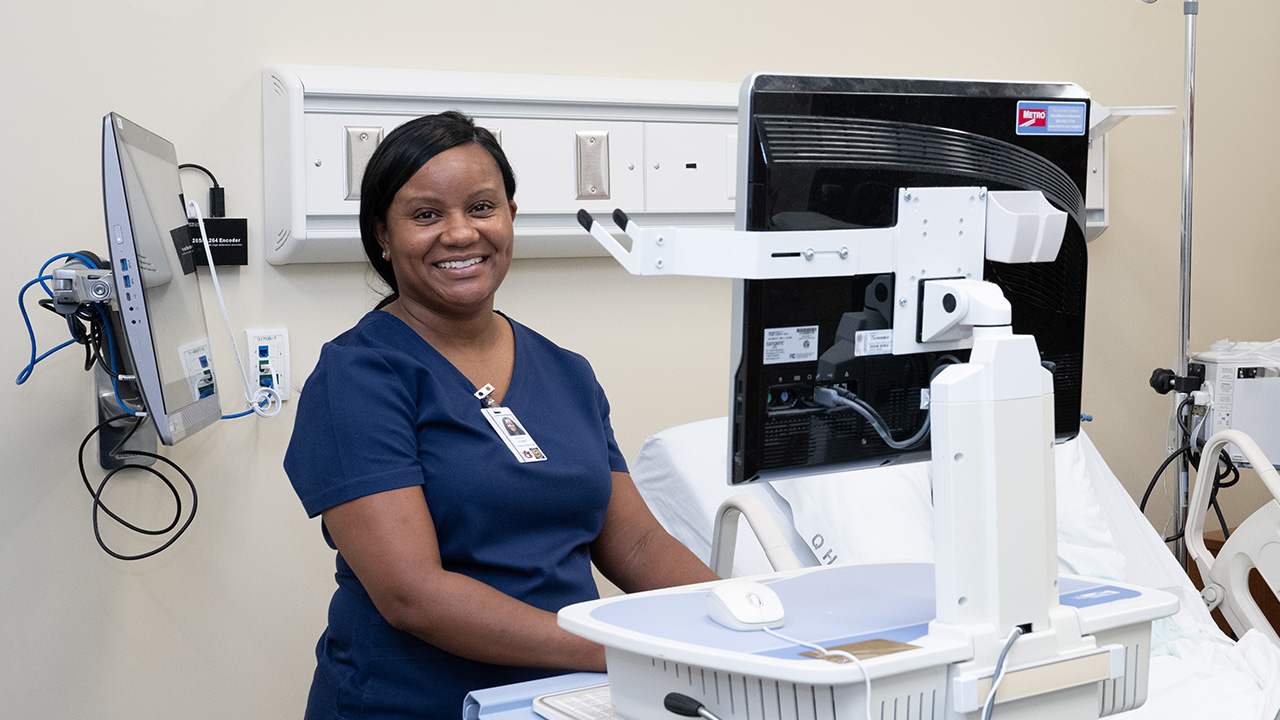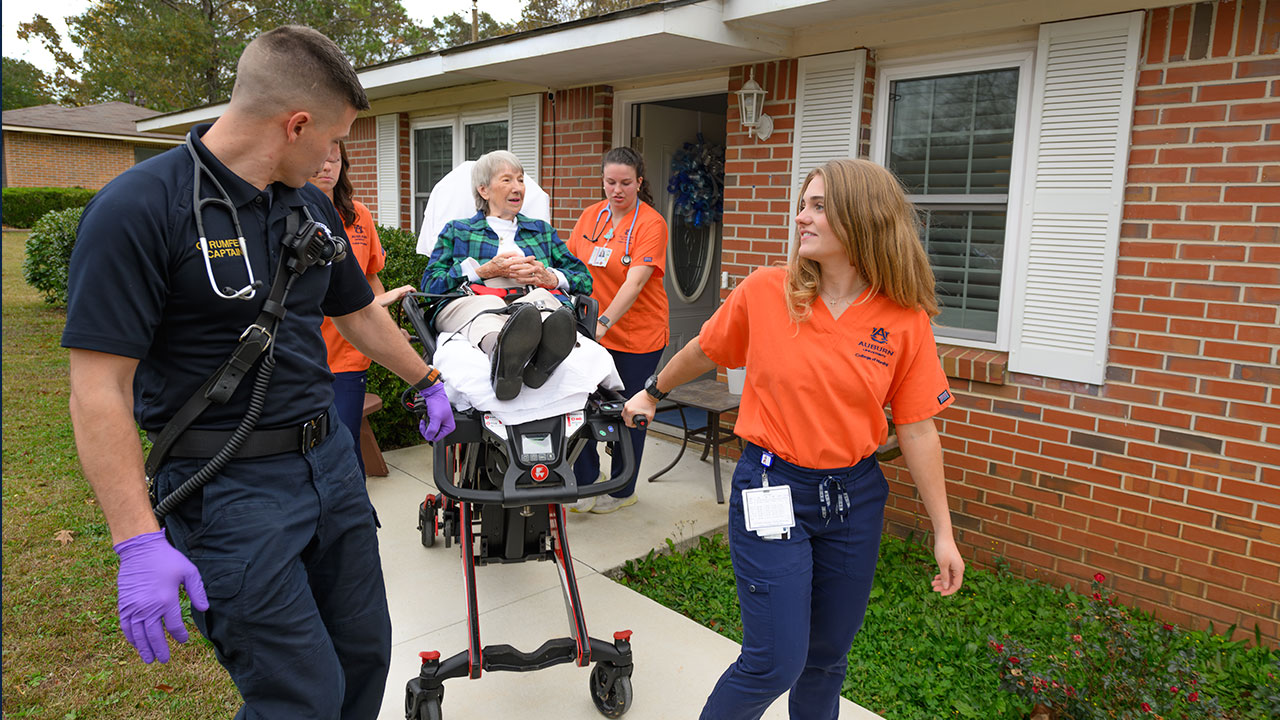content body

Katilya Ware is an associate professor in the College of Nursing who studies African American maternal health.
Katilya Ware, an associate professor in Auburn University’s College of Nursing, is hitting the road to share her research into the barriers preventing African American women from obtaining prenatal care. Since she’s speaking to different types of audiences, she’s getting a wide range of responses and experiences.
“At professional meetings, the discussions tend to be more data-driven and analytical, and the focus is on the technical aspects and the implications for further research,” Ware said. “In contrast, community settings bring a more personal and emotional engagement. The audience often relates directly to the issues being discussed, which can lead to powerful, heartfelt conversations and immediate feedback on how the findings resonate with their lived experiences.”
Ware, along with graduate student Courtney Williams, Mayra Rodriguez of the Edward Via College of Osteopathic Medicine and a colleague at the University of Alabama, recently published an article titled “Perceptions to Overcoming Barriers to Prenatal Care in African American Women” in the journal Nursing Clinics of North America. Since publishing that study, Ware has been on the move, presenting at research symposiums at Tuskegee University and the University of Florida, as well as at community church events at the Pine Hill Women’s Conference, the East Alabama Missionary Baptist Progressive Association and Bethesda Missionary Baptist Church in Opelika, Alabama. She is happily sharing her knowledge with anyone who can help amplify the information.
“Conference presentations help refine the research and foster collaborations, while community presentations ensure the research has a real-world impact and reaches those who can benefit most from the findings,” she said.
Approximately 700 women die in the U.S. from pregnancy-related complications each year, and African American women are disproportionately affected, regardless of socioeconomic status, education or geographic location. More than 80% of pregnancy-related deaths are from treatable illnesses.
“Most pregnancy-related deaths are preventable,” Ware said. “Recognition of warning signs for symptoms that occur during pregnancy or after delivery is essential in receiving a prompt diagnosis and treatment.”
To collect data, Ware traveled the Southeast to conduct interviews with eight health experts, eight faith-based leaders and eight women who were pregnant or gave birth in the past five years. The qualitative data she and her colleagues collected shed light on what keeps some African American women from accessing routine prenatal care, which can identify potential health problems early in a pregnancy and prevent problems from escalating. They found the main barriers to care included scheduling conflicts, an inadequate number of providers, a lack of knowledge and feeling unheard or rushed by a provider.
“I aimed to capture perceptions from both African American women and health experts to identify similarities and differences in their views,” Ware said. “Often, we see trends such as decreased attendance at prenatal visits, but we do not always understand the underlying reasons. Uncovering the ‘why’ behind these actions was important to me, as was understanding how we can improve the experience or access.”
Since her first study on prenatal health in 2021, Ware has contributed significantly to the body of knowledge surrounding African American maternal health. She has noted the increase in women entering pregnancy with chronic conditions, often undiagnosed or undertreated, and a lack of access to primary care. She also has focused on the increase in pregnancy-associated deaths linked to mental health disorders.
Given her findings in this most recent study, Ware knows some of the actions that must be taken to overcome barriers to prenatal care include providing education for both patients and providers, improving access to primary and prenatal care and generating family and community support.
Ware is nearing the completion of a project titled “Engaging African American Women in the South in Patient-Centered Outcomes Research,” which was funded by the Patient-Centered Outcomes Research Institute (PCORI). She has built a trained consortium of African American women, family members, faith-based leaders, clinicians and researchers from across Alabama to improve maternal health outcomes. She hopes to use this model to grow community-based support infrastructure for African American women in the South.
For now, she is continuing to spread the word to any audience that will listen, and that means Ware is making more travel plans. This month alone, she’ll speak to attendees at both PCORI and the American Public Health Association’s annual meetings.
“Through this project, I have learned which interventions are meaningful to African American women and their families,” she said. “Presenting my findings in both professional and community settings has been a unique and rewarding experience, and I hope it helps lead to a reduction in maternal deaths in African American women.”





